Antoine-Henri Jomini
Baron of the Empire
Pronunciation:
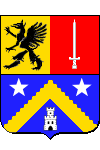
Antoine-Henri Jomini was born in Payerne, in the Swiss canton of Vaud, on March 6, 1779, and began his career as a... bank clerk, first in Basel, then in Paris.
His tastes, however, led him to take up arms. He joined the Swiss army in 1798, became secretary general of the Ministry of War, and had already reached the rank of battalion commander when he resigned in 1802, following political events in his country.
The French army welcomed him into its ranks in 1804. Jomini first served as aide-de-camp to Michel Ney, before becoming his Chief of Staff in 1807. In these various capacities, Jomini took part in the campaigns in Germany (1805), Prussia (1806) and Poland (1807). He analyzed their strategy in various works, including Traité des grandes opérations militaires (1805).
Jomini was made a baron of the Empire in 1808. However, following disagreements with Marshal Ney, he offered his services to Russia for the first time in 1810. Napoleon, who appreciated his writings, retained him by conferring the rank of brigadier general.
In 1812, Jomini took part in the French invasion of Russia as governor of Wilna and then Smolensk. During the retreat, it was he who showed the army the route to the Berezina without being surrounded and forced to surrender.
During the Saxony campaign in 1813, he reconciled with Ney, resumed his position with him and performed so well at the battle of Bautzen that he was nominated by his commander for promotion to major general. But Marshal Alexandre Berthier, who disliked Jomini because of the latter's frequent critical observations, struck his name off the promotion list and had him arrested for late submission of a situation report!
On August 14, 1813, Jomini entered the service of the Allies. Tsar Alexander I made him lieutenant-general (a rank equivalent to major-general) and took him on as aide-de-camp.
Unfavorable to the invasion of France for reasons of European equilibrium, Jomini followed the campaigns of 1814 and 1815 without taking part in the operations, contenting himself with offering advice to the Allied generals and intervening to prevent Switzerland's integrity and independence from suffering. He attended the Congress of Vienna in 1815, and subsequent congresses of the Holy Alliance as an advisor to the Tsar.
He then pursued a brilliant career in Russia, where he became military tutor to the brother of Alexander I, the future Tsar Nicholas I, and then to the latter's son. General-in-chief in 1826, in 1854 he again gave advice to the Tsar during the Crimean War. Napoleon III also called on his experience in 1859 for his Italian campaign.
In poor health since the retreat from Russia, Jomini died in Passy on March 22, 1869, shortly after his ninetieth birthday. He was buried in the 11th division of the Montmartre cemetery.
"Antoine de Jomini", by George Dawe (St James's, Westminster 1781 - Kentish Town 1829).
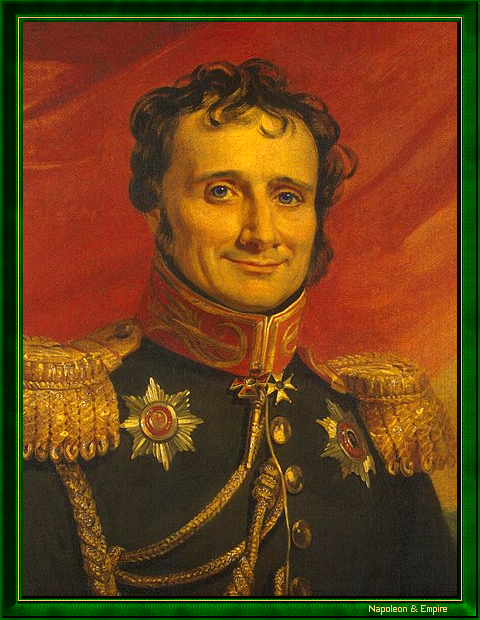
Jomini was sometimes accused of betraying France and taking the plans for the 1813 campaign to the Allies. According to Comte de Montholon, who cites a handwritten note by the Emperor on a book recounting the 1813 campaign, Napoleon himself did justice to these slanders.
Marshal Ney's successes were sometimes attributed mainly to his chief of staff, which was one of the causes of their falling out.
Jomini's theoretical writings were authoritative throughout the first half of the 19th century, and remain of great interest. It has been said that if Napoleon is the god of war, Jomini is his prophet
.
Other portraits
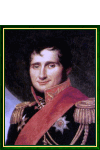
"Antoine de Jomini". Anonymous painter, nineteenth Century.
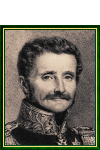
"Antoine de Jomini". Nineteenth Century engraving.
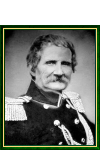
"Antoine de Jomini at the end of his life". Second half of nineteenth Century photograph.